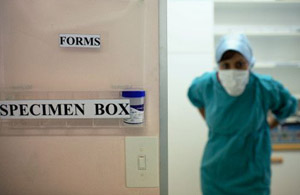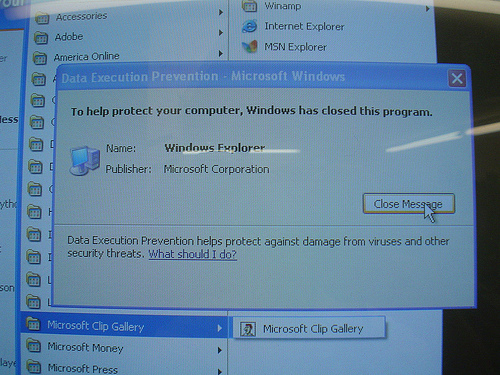Members of Congress introduced 7,440 bills this year and almost none of them help consumers in any meaningful way. Less than fifteen bills this session snagged our editorial love. Most cleared only one chamber, and some still haven’t earned a hearing—but maybe when Congress returns they’ll lob a few of our favorites towards Pennsylvania Ave.
legislation
../../../..//2007/12/14/kids-who-spin-yo-yo/
Kids who spin yo-yo waterballs around their heads can get them wrapped around their necks, leading to tales of temporary blindness, blackouts, and neck scars. Today New Jersey voted 71-to-7 to ban sales of the toy. [Newsday]

CPSC Chair Thinks Senate Bill Would Overwhelm The Agency
Nancy Nord thinks a new Senate bill that would increase the budget and power of the CPSC would overwhelm the agency and “put the American people at greater risk,” according to the Washington Post.

U.S. Retailers And Police Ask Online Sellers To Help Fight Theft
The retail industry claims it loses $30 billion a year from organized retail crime—rings of professional shoplifters who sell their goods at flea markets, pawn shops, and online through auction sites like eBay—so they’re asking online sellers to help by posting serial numbers of products and by providing more information on high-volume sellers. Right now all they can do is ask, but there are politicians in Washington who are making noises about pursuing a legislative solution.

Congress Asks FCC To Accurately Count U.S. Broadband Homes
Congress has added its voice to the growing number of critics who have noted that the FCC is misreporting broadband penetration in the U.S. According to eWeek, last Wednesday a House subcommittee “approved legislation to change the Federal Communications Commission’s methodology for determining deployment.” The FCC currently counts a single home in a zip code as representative of the full zip code—so one home having broadband access is considered the same as every home in that area having broadband access. By doing this, they inflate the number of homes with broadband access and present a picture of increased “natural” competition in the market, which is then used by telecoms and lobbyists to argue against policy decisions that don’t favor existing corporations.

You Have Until Friday To Tell The Fed That Their Proposed New Credit Card Rules Aren't Enough
The Federal Reserve Board has set this Friday, October 12th, as the deadline for hearing any comments regarding Regulation Z, its proposed set of modified guidelines for the credit card industry. According to experts who aren’t on the credit card companies’ payrolls, the new rules are a weak fix that does little to protect consumers.

Should Do Not Call List Registrations Last Forever?
Powerful Members of Congress are backing measures that would prevent Do Not Call registrations from expiring. Though the list has proven wildly popular, covering 150 million numbers in a country of 300 million, the FTC currently expires listings after five years to ostensibly account for people who move or change their number. Proposals to make registrations permanent have already won over the editorial board of the Asheville Citizen-Times:
The popularity of the list confirms that few people want to have their dinner or other personal time interrupted to deal with a telemarketer intent on selling something. The argument that people can just not answer the phone doesn’t work for everyone. Those with loved ones overseas or with family members who need special care are usually unwilling to risk missing a call that might bring critical or time-sensitive information.

New Bill Would Require Banks To Warn You If Your ATM Or Debit Transaction Will Result In An Overdraft Fee
If you perform an ATM or debit card transaction that results in your account being overdrafted, many banks will now simply authorize the transaction and slap you with an overdraft fee. A new bill, HR946, would “require banks to give consumers a chance to back out of transactions that might cause them to overdraw their checking accounts,” according to the Kansas City Star.

Proposed Law Would Let Bankruptcy Courts Rewrite Predatory Mortgages
Several Democrats proposed a bill last week in the House of Representatives that would allow bankruptcy courts to alter mortgages written by so-called “predatory lenders.” The bill would save around 600,000 Americans from foreclosure, says its author, Representative Brad Miller from North Carolina.

House Approves Drug Testing Bill, Senate & Prez Expected To Follow
This week, the House of Representatives passed a new bill that gives the FDA the power to require new warning labels on existing prescription drugs, and the power to request “post-approval” studies of medicines as warranted. It also gives the FDA the authority to levy fines as high as $10 million to companies that fail to comply. The bill passed with a 405-7 vote on Wednesday and is expected to be passed by the Senate and approved by the President.
../../../..//2007/09/20/the-us-house-of/
The U.S. House of Representatives approved “passenger rights” legislation today when it approved a bill to fund the Federal Aviation Administration. The passenger rights amendment gives the government the ability to force airlines to change their schedules if they “aggravated delays by operating too many flights at peak periods at the busiest airports.” Also included in the bill: a hike on the passenger facility charge on a ticket, from $4.50 to $7. [Reuters]

Introducing The Most Impressive Cell Phone Bill Of The 110th Congress
Senators Amy Klobuchar (D-MN) and Jay Rockefeller (D-WV) recently announced plans to introduce our wet dream of a cellphone bill. The bill realizes our wildest legislative fantasies: a world where cellphone companies stop inventing official-sounding fees and levying harsh ETFs, and instead allow their customers to take unlocked phones to the company with the best reception according to precise coverage maps provided free of charge.

As The Fed Snoozes, States Step Into The Subprime Breach
States are beginning to enact protections for subprime borrowers, reacting to the absence of a national solution from Washington. North Carolina last week became one of one of several states to clamp down on the adjustable-rate mortgages that have fueled the subprime meltdown.

Should The Government Require Hospitals To Disclose Infection Rates?
Earlier this month the governor of New Jersey signed into law a regulation that requires all hospitals in the state to report MRSA infection rates (that’s the drug-resistant staph infection you always hear about). And last week, a sate-appointed panel in Massachusetts recommended that laws be passed requiring all hospitals to publicly report infection rates. Should the government regulate hospitals in this manner? And if your state doesn’t require it, is there any way you can find out on your own?

States Target Big Box Retail
Maine Gov. John Baldacci last week signed into law a measure requiring developers of retail stores exceeding 75,000 square feet to conduct studies gauging the project’s impact on municipal services, the environment and local businesses. The proposed store can’t be approved if the studies find it is likely to cause a quantifiable, “undue adverse impact” on more than one of those fronts and is expected to have a harmful effect on the community overall.

House Passes Two Anti-Spyware Measures
The House has passed not one, but two cleverly-named measures targeting the miscreants who make and promote spyware. Though the FTC, Justice Department, and several state attorneys general are already empowered to prosecute spyware manufacturers, the two measures would extend existing laws by subjecting spyware makers to jail terms and multimillion-dollar fines.

Harder To Sell Used CDs Than It Is To Get A Driver's License?
…you’ll certainly feel like a criminal once the local record shop makes copies of all of your identifying information and even collects your fingerprints. Such is the state of affairs in Florida, which now has the dubious distinction of being so anal about the sale of used music CDs that record shops there are starting to get out of the business of dealing with used content because they don’t want to pay a $10,000 bond for the “right” to treat their customers like criminals. …



